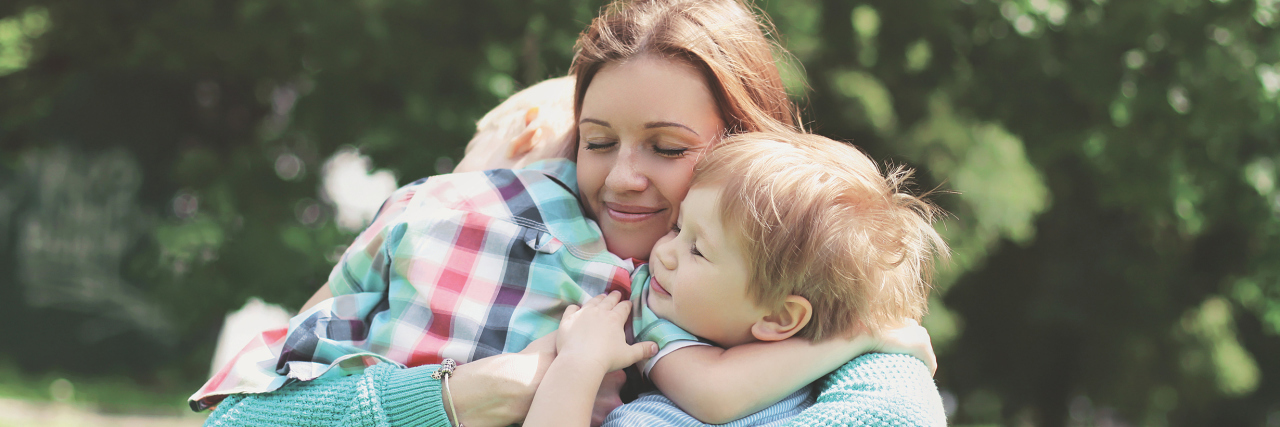When do I tell my children I have epilepsy?
Do you know what a grand mal seizure is? I found out when I was 8 years old. I also found out how it felt after having one… a mouth being full of swollen tongue, the taste of blood and the feeling of being underwater with a throbbing headache. As with most people who have epilepsy, doctors have no idea why I have it or what caused it. Mine is not genetic; it may have resulted from one of the many times I thwacked my head as a kid. I liked to hang upside-down on the monkey bars a lot. No surprise that my stampeding hippo brand of grace emerged early, and I frequently fell from exactly that upside-down position.
Other relevant stories:
• What Are the 12 Types of Seizures
• What to Do When Someone Has a Seizure
• Can a Woman with Epilepsy Have a Baby
Before I considered getting pregnant, I did a bunch of research on pregnancy and epilepsy, including lengthy discussions with both my OB/GYN and with my neurologist. With their support, I looked at the medication I am on and how it would affect fetal development. After changing medication every couple of years in childhood (at one point I was proud I could swallow 13 pills at once, ha), one medication has worked for me for my entire adulthood, and it is a pretty benign drug. Sometimes it is used in conjunction with other drugs for different neurological and psychiatric disorders. My doctors and I determined it was OK and fairly low risk for me to carry a pregnancy to term. My OB had even delivered babies from other epileptic mothers.
Unlike my experience as a child, as an adult, when I do very rarely have a grand mal seizure, I am already in bed – they only happen when I am falling asleep. When I was a kid I would just randomly fall out of nowhere and boom! Shaking on the ground, unconscious in front of all of my friends at the playground, frothing at the mouth with my eyes rolled back in my head. Fifth grade in particular was really great; allow me to regale you with the compassion displayed by prepubescent elementary school students.
Or better yet, don’t.
In any case, I am fortunate this has not happened since puberty was in the rearview mirror. However, though they have been within the safe confines of my own bed, I have had seizures – one at the beginning of the second trimester of each pregnancy, and one more since. During pregnancy, it’s because my doctors and I lowered the dose of my medication during the first trimester, and then went back up during the second – but not fast enough, either time. Both kids turned out fine; my uterus kept working even when my brain wasn’t. The other seizure I’ve had was the result of the sleep deprivation I experienced during babyhood, particularly the second one, and that leading to me forgetting my medication.
For at least one of these, I know my oldest was cognizant enough for my husband to have to tell him that mom was sick but that it would be OK. I have no idea how much of that got digested.
So, when do I talk to him about it in greater detail, if at all? When he has a classmate who has seizures? When I’m so old that he has to drive me to my annual neurologist appointment? Will he ever have to actually see me have a seizure?
The thought makes me shudder.
Most of the time, my condition is invisible. This isn’t the kind of thing kids just naturally ask about, like how babies are made or why stoplights are green and red instead of purple and brown. But at some point, both my kids definitely need to understand it, to be prepared for the possibility of seeing me have one eventually. Of course, I hope I never have one again, but the likelihood of that is fairly slim. Do I sit my little monsters down? Together? Separately? At what ages? When and how can I normalize it enough to avoid scaring them? Do I pretend it doesn’t exist and hope and pray I never have another seizure?
These are tough questions, at least for me. The path I’m on for now involves mentioning something about it in regular conversation. I expect that one of my kids will ask something specific about it eventually. If nothing else, perhaps they will ask why I take medication every day. I try to remember to refer to it as my “epilepsy medication.”
I have epilepsy. I do not want there to be any shame in that. I am a parent. I do not want to scare my children.
Reconciling those two is a challenge.
This post originally appeared on Confessions … of a Midcoast Parent.
We want to hear your story. Become a Mighty contributor here.
Thinkstock photo via Guasor.

